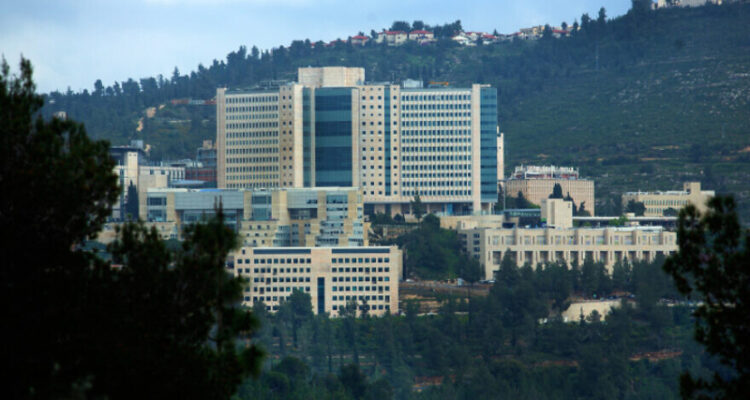The condition is temporary, and most patients recover within two months.
By Akiva Van Koningsveld, JNS
Since Hamas’s Oct. 7 massacre, Israeli hospitals have observed a two- to fivefold increase in cases of “broken heart syndrome,” a rare condition that can be triggered by intense emotional or physical stress, according to studies recently presented to the Israel Heart Society.
The syndrome, which is also known as takotsubo cardiomyopathy, mainly affects women and causes symptoms similar to a heart attack via a sudden and rapid weakening of the left ventricle.
The condition is temporary and most patients recover within two months.
Broken heart syndrome occurs in about 2% of people treated for a heart attack, though researchers believe the true number of cases is higher.
In the weeks following the Oct. 7 massacre—in which Hamas terrorists murdered 1,200 people while raping, torturing, burning and mutilating their victims—the Barzilai Hospital in the southern city of Ashkelon recorded five cases, up from one during the same period in 2022.
In addition, while usually only 20% of patients suffer heart failure-like complications, Barzilai doctors recorded an uptick in more severe cases in the period after Oct. 7, with some two-thirds suffering complications.
A second study included data from six hospitals throughout Israel—Barzilai, Assuta Ashdod Medical Center, Hillel Yaffe Medical Center in Hadera, Shamir Medical Center in Be’er Ya’akov, Wolfson Medical Center in Holon and Meir Medical Center in Kfar Saba—and recorded 30 cases between October-December 2023, up from 16 the year before.
“So far, most of the descriptions of patients with broken heart syndrome have been reported following personal crises such as the death of a relative,” said professor Eli Lev, who heads Assuta Ashdod’s cardiology department and spearheaded the study together with Dr. Yuval Kachila.
“I am not aware of a description in the professional literature of takotsubo cases following a national trauma, and this is the major innovation in our research,” he said, adding: “Our research shows that not only residents of the south, but the entire country suffered.”
Israel Heart Society chairman professor Amit Segev told Hebrew media that he had expected the findings and was “surprised it wasn’t much more.”
“Broken heart syndrome is related to an increase in stress, and in all kinds of situations where there is an increase in stress, it is expected that there will be an increase in this syndrome,” Segev explained.
“For example, following the earthquake in California, they saw a huge increase in heart attacks, some of which were broken heart syndrome.”
In late October, Israeli media reported that ZAKA volunteer Motti Botzkin suffered a stress-induced heart attack after days of searching for human remains in the Gaza border communities.
He was said to have been hospitalized in critical condition, but eventually recovered.
Around the same period, Israel Defense Forces bereavement officer Capt. (res.) Sivan Sekeli Ben Zichri went into a stress-induced cardiac arrest upon witnessing 17 freshly dug graves at a funeral.
“I couldn’t feel my left side, my right hand was paralyzed, and my heart felt like someone was ripping it out of my chest,” she recalled in an interview. “My heart literally broke from the psychological stress. It’s not just me saying it. My cardiologists also say that is what is happened.”
Israel Hayom reported that one of the studies was rejected by an international scientific journal, allegedly due to the publication’s bias against the Jewish state. Researchers were reportedly told they should have focused on Gaza instead of Israel.





